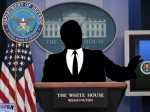There is no book which can equal the rich view of the inner workings of some of the most famous groups associated with Anonymous as The Many Faces of Anonymous. Some of the faces are obscured, others are seen through translucent pseudonyms, and some come waddling in for lunch to give a terrible lesson in realpolitik. Biella Coleman does not simply tell the tale of her wanderings through the recursive labyrinth of IRC chats, but she dutifully leads readers into a crass culture of misfits that once terrified outsiders for kicks and now evangelizes for internet liberties.
Surfin’ the Nerd Scare
Coleman, among a few others, played a central role in the transformation of Anonymous from a demonic in-joke to a typical Hollywood anti-hero. She describes her roles, “. . .editing manifestos, teaching reporters how to find Anonymous, and correcting misinformation.” Although she also seeks to preserve “enchantment” — but the primary spell leveraged in the summoning of the mythical trickster Anonymous was Fear.
Her objective hobbles along on a faulty media-centric point of view, “[T]he public . . . tends to see Anonymous from the vantage point of carefully sculpted propaganda and the media’s rather predictable gaze.” While it is not wrong to say that that news media sensationalizes and propagandizes as normal operating procedure, this is less than a half image. In its formative days, Anonymous purposefully exploited fearmongering, gleefully generating its mythology by feeding tidbits of terror that the news media could not resist. This dynamic continues, although the demon is no longer merely a plaything. To many who first learned about Anonymous through the lens of the news media, it is an earnest ongoing revolutionary movement destined to overthrow all world governments.
Coleman does little to color the give and take in the relationship between Anonymous and the media, even seemingly denying that it is possible for the public to grasp Anonymous, “. . . [Anon]’s machinations [are] incommensurable with the driving logic of the mainstream corporate media . . .” Coleman’s most egregious untruth seeks to dampen the inflated fears, denying Anonymous would dare threaten to disable the power grid, saying, “Anonymous . . . has never been known to publicly call for such an attack.” One might wonder what exactly the demonic, trollish Anonymous of yesteryear is known for, if it ever existed at all. Certainly, Anonymous has called for much worse, and similar threats are a continuing annoyance to Coleman and like minded Anons who prefer the misunderstood anti-hero who evangelizes for internet liberties.
A claim made by controversial Anon, Commander X, does not stand alone, but is one of many examples of the inflated threats and downright ridiculous boasts that are essential to the existence of Anonymous and its continued status as a political force worthy of the news media’s sensational gaze:
Q. What’s next for Anonymous?
A: Right now we have access to every classified database in the U.S. government. It’s a matter of when we leak the contents of those databases, not if. You know how we got access? We didn’t hack them. The access was given to us by the people who run the systems. The five-star general (and) the Secretary of Defence who sit in the cushy plush offices at the top of the Pentagon don’t run anything anymore. It’s the pimply-faced kid in the basement who controls the whole game, and Bradley Manning proved that. The fact he had the 250,000 cables that were released effectively cut the power of the U.S. State Department in half. The Afghan war diaries and the Iran war diaries effectively cut the political clout of the U.S. Department of Defence in half. All because of one guy who had enough balls to slip a CD in an envelope and mail it to somebody.
Now people are leaking to Anonymous and they’re not coming to us with this document or that document or a CD, they’re coming to us with keys to the kingdom, they’re giving us the passwords and usernames to whole secure databases that we now have free reign over. … The world needs to be concerned.
Anonymous has leveraged the public’s fixations and fears to great success, but Coleman seems to mutter past this dark stain to depict the misunderstood nerds with hearts of gold who often are at the heart of many operations. However, the centrality of fearmongering in both the genesis of the Anonymous myth as well as in its continued influence cannot be overstated. It is such an effective and powerful kind of propaganda that venture capitalists as well as terrorists want to emulate it. Certainly, ISIS has taken lessons from Anonymous and employed many of the same or similar propaganda tactics towards its own horrifying ends. An unnamed venture capitalist, who organized protests against SOPA, approached Biella Coleman and from this exchange she concluded that, “Anonymous had become an important, recognized, and potent component of the global political mix.”
“Decentralization is power”
[pullquote]”Decentralization is power” ~ Sabu[/pullquote]Coleman writes, “Anonymous abides by a particular strain of what geeks call “do-ocracy,” which may intend to show there is no theory or politics that precede or unify its actions. Yet, taken as a whole, it is apparent that libertarian concerns for a “free internet” as well as populist outrage at various media sensations are what most intensely focus the “do-ocracy” into unified action. Yet Coleman wants to deny that there is a libertarian streak at all, even as she cops to it, “. . . the geek and hacker are not bound to a single political sentiment, such as libertarianism, and they certainly don’t agree on how social change should proceed . . . even those aligned on the same side of the struggle for civil liberties–were wary of the tactics employed.” [Emphasis is mine]
The book does not look too critically at “the struggle for civil liberties,” or what Anonymous might bring about through its actions, but focuses questioning on the tactics that are employed to these ends. The critique of ends instead of means may simply be outside the scope of the work and instead something for a political theorist to untangle, but Coleman’s exuberance after Anonymous was given a thumbs up from an unnamed Silicon Valley venture capitalist is a sure sign that Anonymous is up to something that badly needs to be criticized and theorized before the criticism-proofed “do-ocracy” charges into its next action. A minority of operations tend to the poor or the weak, and the concerns of the geek are most important. Those concerns tend to align perfectly with the aims of billion dollar computer corporations that employ only hundreds and exacerbate the ever-growing plight of the poor, even as they capitalize on their data.
Coleman wrote around certain far right tendencies in Anonymous and dampened its sensational relationship with news media in her book as well as in her cooperation with the group. Whether this does a great service or disservice to Anonymous — a constellation of sometimes contradictory myths — isn’t a heavy ethical concern. As Anonymous changes, its troubling ethics are on full display in its objectives and its tone. The lulz-seeking prankster and even the lulzy activist are already yesteryear’s Anonymous. Instead of going after 11 year old megalomaniacs, private security contractors, and bad geek religions, increasingly it is a banner for populist far-right libertarian maniacs who want to tear down governments and police forces everywhere, citing conspiracies of pedophiles in high offices or whatever reasoning can be plugged into the sensational news cycle.





